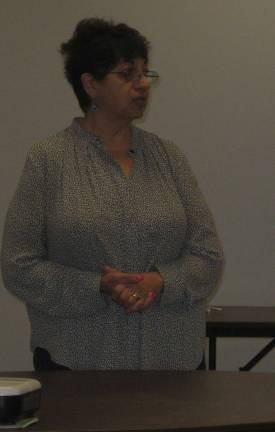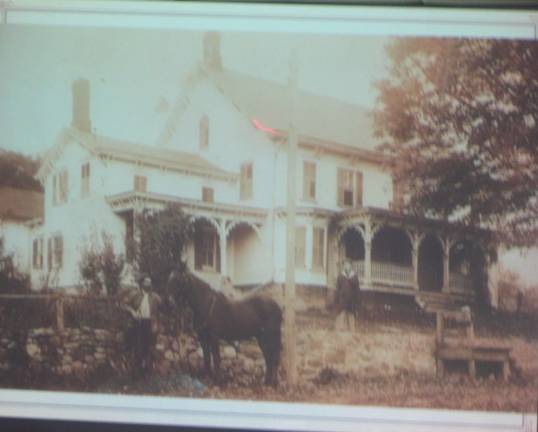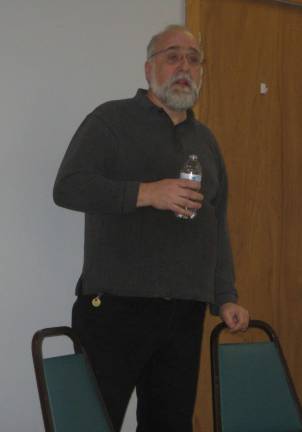Group explores Vernon's history



VERNON — Grateful to relieve their most recent bout with cabin fever, residents enjoyed reviewing Vernon’s past at another sampling of Then and Now, a presentation offered by the Vernon Township Historical Society on Sunday afternoon March 19.
Vernon historian Ron Dupont Jr. divided a slide show of the town’s history into categories depicting Vernon’s houses, businesses, churches, schoolhouses and industry coinciding the past pictorial with the current scene.
“I think showing past and current pictures of the town is vital in explaining its history, especially to school children and adults alike. These are places we see and pass on a daily basis,” Dupont said.
He spoke of historical Vernon homes, namely the Denton Homestead, moved from the current Burger King site, the Park log cabin on Glenwood Mt. Rd. and the Campbell House demolished to make way for the new Taco Bell. According to historical society president Jessi Paladini, the Campbell House wasn’t of historical status but the builders of the Taco Bell were gracious enough to allow the Vernon Historical Society access to the house before demolition to procure items of interest. Some items included ski memorabilia. Interesting to note, the building housing the former deli, The Place by the Tracks, was an actual depot for the Lehigh-Hudson rail lines, while the concrete ruin across the street from it was the Vernon Creamery where milk from the many Vernon dairy farms was collected.
Dupont mentioned that the former St. Thomas Episcopal Church was Vernon’s oldest church. The Methodist Church was built in 1871 and the McAfee Bible Church had been built by limestone quarry workers in 1922. As Dupont displayed the many slides of past and similar current locations, he advised the audience to watch the mountain pattern formations. The audience was amazed that they could observe the precise locale then and now.
Interesting facts also bought up by the historian were that all Sussex County schoolhouses were only painted white. The McAfee section of Vernon was originally called West Vernon however because of mail problems was renamed McAfee after the area’s blacksmith Samuel McAfee and lastly in its run of iron production, the Wawayanda Furnace consumed roughly 5,000 to 6,000 acres of forest.
The presentation ended with a question and answer, comment period where long- time residents also were able to contribute their own family personal history.
Paladini will be presenting a lesson on Vernon’s contribution and participation during the Revolutionary War at Cedar Mountain School at the end of March.